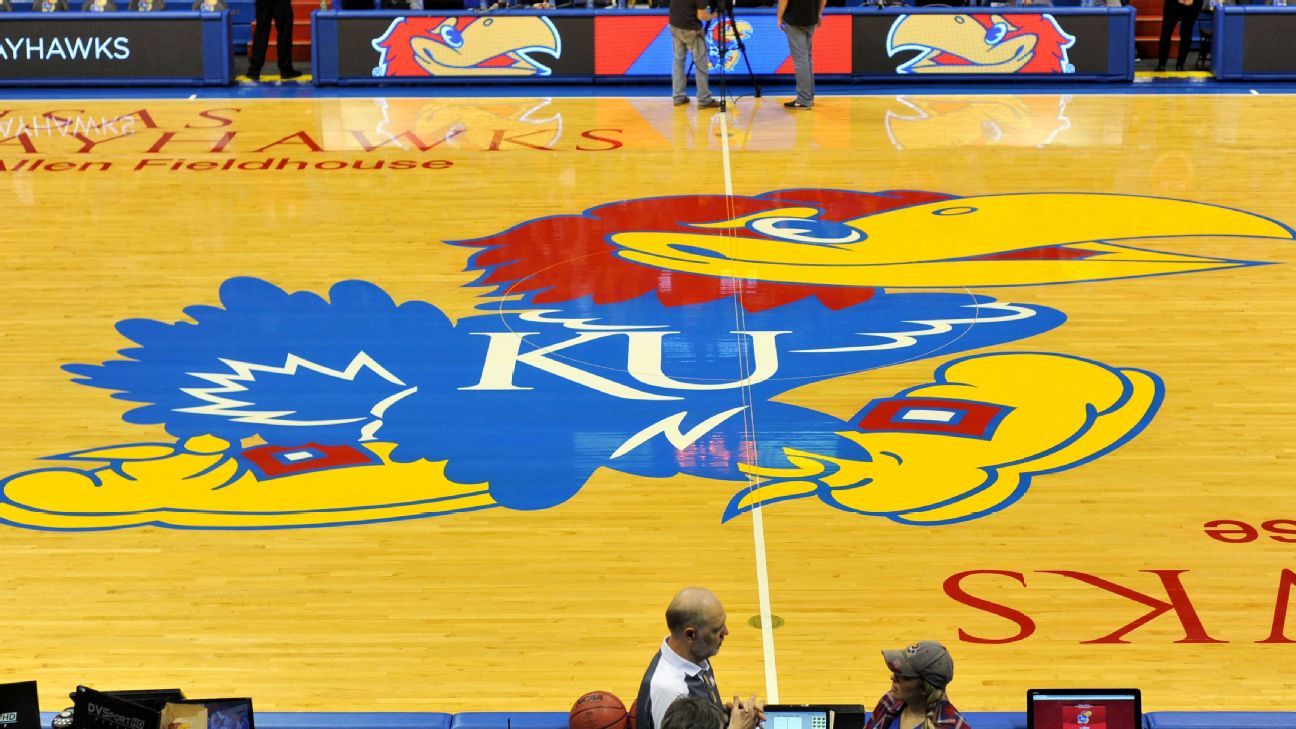The Kansas Jayhawks‘ men’s basketball program and coach Bill Self won’t face any additional serious punishment stemming from the FBI’s 2017 investigation into college basketball, the Independent Resolution Panel ruled Wednesday.
As part of Wednesday’s ruling, the Jayhawks were placed on a three-year probation and will have to vacate its 2018 Final Four appearance and wins from that season due to Silvio de Sousa’s participation. The program, however, was not given a postseason ban and Self and assistant coach Kurtis Townsend will face no further suspension.
The panel found two Level II violations and two Level III violations for the school, one Level II violation and one Level III violation for Townsend, and one Level III violation for Self. The school was originally accused of five Level I violations.
Kansas self-imposed sanctions last November, suspending Self and Townsend for the first four games of the 2022-23 season. Self and Townsend were also barred from off-campus recruiting for four months from April through July 2022.
The school also self-imposed other recruiting restrictions, including the reduction of four official visits last year and this year, a reduction in three total scholarships over three years, a six-week ban on recruiting communications and unofficial visits, and a reduction in recruiting days during the 2022-23 academic year.
Kansas was accused in September 2019 of five Level I violations tied to its relationship with Adidas, with the NCAA accusing Kansas of using Adidas to gain an illegal advantage in recruiting. In its notice of allegations, the NCAA said Self and Townsend “embraced, welcomed and encouraged” Adidas employees to steer recruits to Kansas. The school was charged with lack of institutional control and Self was charged with head coach responsibility violations.
Former Adidas executive James Gatto was accused of working with former Adidas consultant T.J. Gassnola to facilitate $90,000 from Adidas to former Jayhawks recruit Billy Preston’s mother and agreeing to pay $20,000 to Fenny Falmagne, De Sousa’s guardian, to help him “get out from under” a pay-for-play scheme to attend Maryland, which is sponsored by Under Armour.
Because De Sousa played 20 games during the 2017-18 season, Kansas has to vacate wins and records from that season, which includes a Final Four appearance.
The NCAA also included allegations that Gassnola provided $15,000 to an unidentified individual to give to DeAndre Ayton’s mother, and that Gassnola “communicated in a text message to Self that he had let Self down” when Ayton signed with Arizona.
Self signed what amounts to a lifetime contract in April 2021. It’s a five-year contract with an additional year added at the end of every season, with a guaranteed salary of $5.41 million per year. The contract also includes a clause that the school cannot fire Self for cause “due to any current infractions matter that involves conduct on or prior to” the signing of the deal.
The Kansas ruling is the final act by the IARP, which was created in 2019 as an alternative to the NCAA’s traditional infractions process. Several schools impacted by the FBI investigation into college basketball opted to have their cases adjudicated by the IARP, including Louisville, Arizona, LSU and NC State. Memphis also went through the IARP for the investigation into whether Penny Hardaway violated NCAA rules when he provided benefits to three prospective student-athletes.
In August 2022, the NCAA announced it was discontinuing the IARP following the end of its active cases. Kansas was the last remaining case for the IARP, and the last remaining case stemming from the 2017 FBI investigation into corruption in college basketball.
Kansas is expected to open the 2023-24 college basketball season as the No. 1 team in the country.
